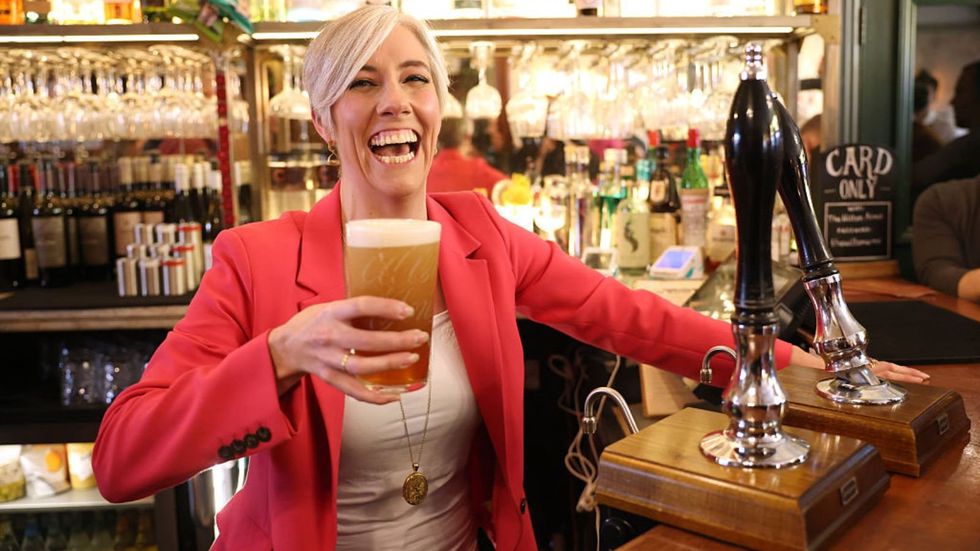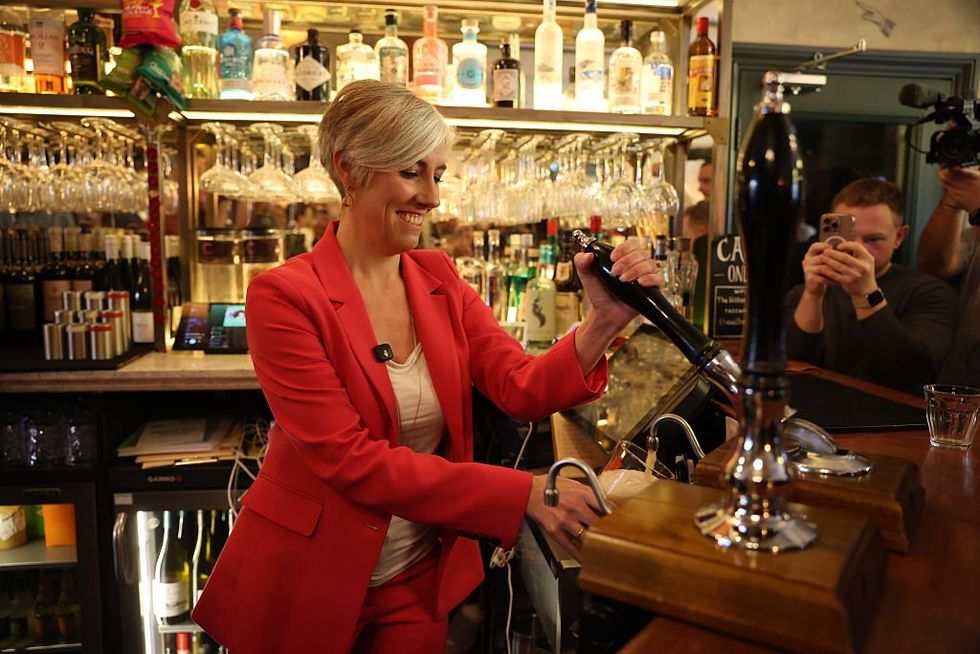The Liberal Democrats have unveiled an emergency proposal to cut VAT for hospitality venues from 20 to 15 per cent, saying the move would help families priced out of Britain’s pubs and restaurants.
The tax reduction is the centrepiece of a £12billion cost of living support package designed to deliver immediate relief for households and small businesses.
Deputy leader and Treasury spokesperson Daisy Cooper announced the initiative, which would also reduce household energy bills by around £90 a year.
The party’s dual-pronged plan aims to ease financial pressure on both consumers and the hospitality sector.
The proposals come as new polling highlights the depth of Britain’s affordability crisis.
Research suggests most people now consider dining out or visiting the pub financially out of reach.
The support package would run for 18 months, ending in April 2027, and deliver significant savings for families across the country.
The VAT reduction would cost £7.5billion, with a further £4.5billion required to remove the renewables obligation levy.
According to Liberal Democrat calculations, a typical family would save around £270 over the duration of the scheme.
The party says both measures could take effect immediately following the Budget announcement.

The VAT cut is intended to boost high streets by increasing footfall in pubs, restaurants and entertainment venues.
The proposals would also bring energy costs down to their second-lowest level since the energy crisis began in 2022.
To fund the plan, the Liberal Democrats would impose a levy on major financial institutions — a policy first proposed by the IPPR think tank.
The windfall tax would raise about £7billion annually, generating £30billion by 2030.
The party says less than half of those revenues would be needed to fund the 18-month cost-of-living package, with the remainder supporting future initiatives.
LATEST DEVELOPMENTS
- Rachel Reeves’s Budget set for ‘biggest tax haul since 1970s’ as Treasury seeks £45bn to plug gap
- Private school VAT hike: Labour admits it is CLUELESS how many teachers tax raid has funded
- Rachel Reeves signals major tax hikes to come in manifesto-busting Budget

Ms Cooper also outlined plans for an Energy Security Bank, requiring £2billion in initial capital.
The bank would provide green energy home loans but is not expected to launch until the 2027–28 financial year following a two-year development period.
Polling by More in Common shows more than half of Britons believe pub visits are no longer affordable.
Nearly two-thirds say restaurant meals are beyond reach, while 45 per cent find cinema trips unaffordable.
Ms Cooper said: “People are working with their nose to the grindstone all month and have next to nothing left over after sky-high bills and spiralling food prices.”
She added: “In years gone by people knew they could look forward to fish and chips with their family on a Friday night or a weekend trip to the cinema.
“Now those small joys – the ones that make life worth living – are becoming an unaffordable luxury for too many.”
Chancellor Rachel Reeves is not expected to adopt the Liberal Democrat proposals in her upcoming Budget.
Treasury sources suggested VAT reductions are unlikely, despite pressure to address rising household costs.

The party’s longer-term plans would use the remaining £18billion generated by the bank levy between April 2027 and April 2030 to fund the Energy Security Bank.
Energy policy remains a key dividing line among the political parties.
The Liberal Democrats have joined Conservative calls to scrap the renewables obligation, while Labour focuses on renewable expansion to meet its pledge of cutting bills by up to £300 by 2030.
Reform UK continues to back fossil fuels and fracking, arguing for an end to clean energy targets.
Our Standards:
The GB News Editorial Charter







Follow